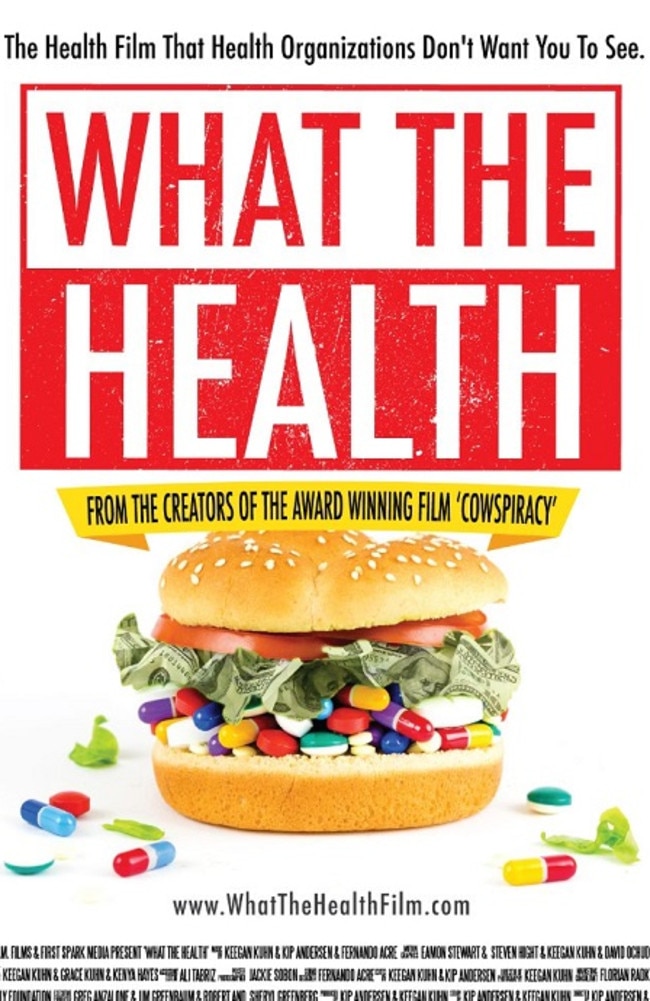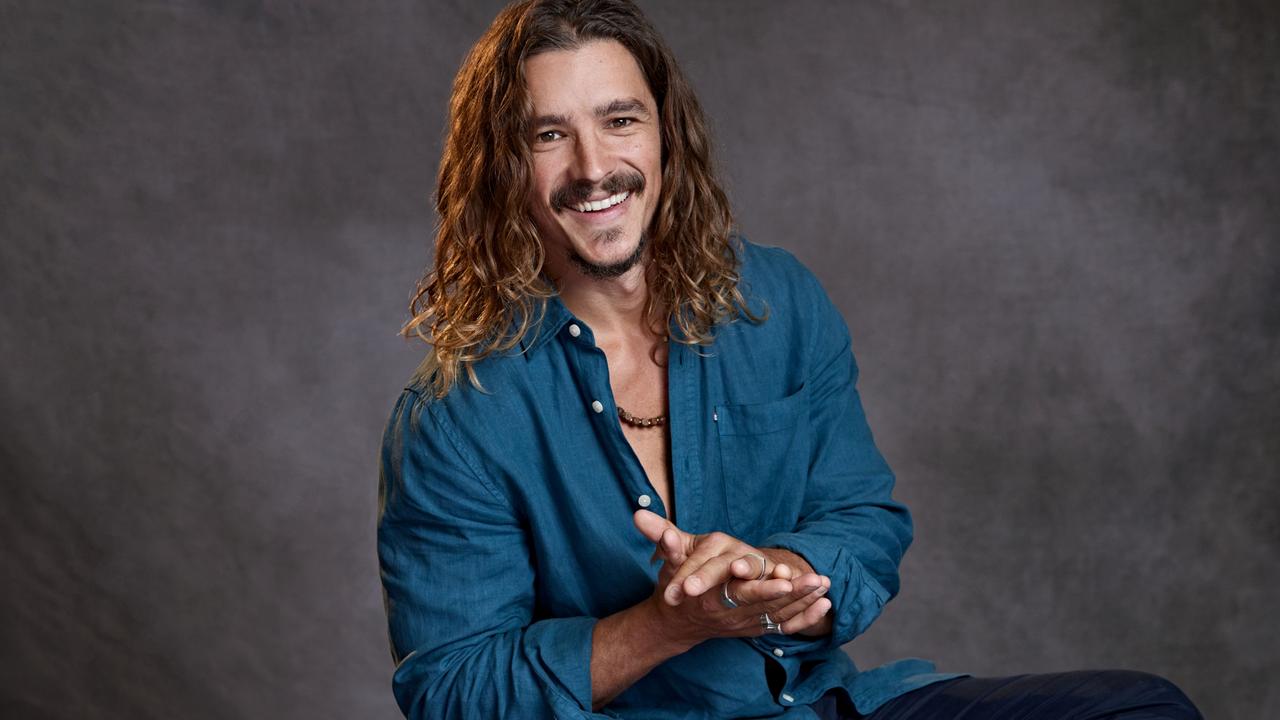Sensational claims by Netflix documentary What The Health slammed by experts
A POPULAR Netflix documentary that claims eating eggs is as bad as smoking cigarettes has been slammed by health professionals.

New Movies
Don't miss out on the headlines from New Movies. Followed categories will be added to My News.
A POPULAR Netflix documentary that claims eating eggs is as bad as smoking cigarettes has been slammed by health professionals for scaremongering and “cherrypicking” scientific studies.
Described by the filmmakers as “the film that health organisations don’t want you to see”, when What the Health was added to Netflix’s library recently, it quickly gained traction.
A-list celebrities such as Miley Cyrus and Liam Hemsworth were urging their fans to watch the controversial documentary and embrace a vegan lifestyle.
The pro-vegan movie explores the link between disease and the consumption of animal products, making sensational claims such as one serving of processed meat a day increases risk of developing diabetes by 51 per cent, or that eating one egg a day is as bad as smoking five cigarettes a day.
It also questions the practices of leading health and pharmaceutical organisations, suggesting that they have a vested interest in the business of keeping us sick.
And it isn’t the first documentary that the filmmakers, Kip Andersen and Keegan Kuhn, have made which attacks the meat industry. The duo had a hit in 2014 with Cowspiracy, another Netflix movie advocating a plant-based diet and endorsed by celebrities.
Leonardo DiCaprio, a high-profile vegetarian, saw the film and helped persuade Netflix to release it with him as executive producer.
What the Health’s executive producer is another celebrity, Joaquin Phoenix, star of Gladiator and Walk the Line. He is also a vegan.
The film’s website lists sources that it says support its claims but what it doesn’t make clear is that it is also partly funded by vegans and it relies heavily on interviews with vegan doctors and advocates.
And while many viewers were quick to vow they will never eat meat or animal products again after watching the documentary, the scientific community has challenged several claims in the film.

Alexandra Freeman, executive director of the Winton Centre for Risk and Evidence Communication, at Cambridge University, told The Times that the claim about one egg a day being as bad as five cigarettes was sourced to an “extremely controversial paper”.
Eggs have gotten negative attention from the media for decades due to their cholesterol level, however, much of the scientific community has moved on since evidence has piled up proving that eating more cholesterol isn’t necessarily associated with higher levels in the blood or an increased risk of heart disease.
And New York City dietitian and nutritionist Mary Jane Detroyer told the Daily Mail that the claim made in the film that one serving of processed meat a day raises the risk of type 2 diabetes by 51 per cent is “distorted science”.
According to multiple studies, she said, if you eat highly processed red meat a day there is a 19 per cent increased risk of developing diabetes.
“It’s distorted science, and if you misrepresent something like that, I just can’t trust anything you tell me,” Ms Detroyer said.
Many of the health claims are also “relative risk”, as one of Australia’s leading dietitians, Susie Burrell, explains.
“The issue is that all studies are linked to relative risk. This means the chance you will get ill,” she wrote for news.com.au.
“It does not mean that every person who consumes processed meat (for which there is relatively strong evidence a high intake is linked to an increased risk of developing colon cancer), will actually get cancer. Such data also does not take into account dietary patterns.
“Human beings do not eat one food, they eat a range of foods, and when it comes to nutrition, things are complicated. For example, cultures who have a high intake of processed meat, may also have very high intake of fresh fruits and vegetables, which appears to negate the risk.”

Ms Burrell, like many other health professionals, has also called out the documentary for cherrypicking scientific studies.
“The key thing for the average person to know is that if you search the scientific literature, you will find anything that you look for,” she wrote for news.com.au.
“There are some studies that link a high intake of processed meat to an increased risk of developing cancer. There are also many studies that do not support this finding.
“It is the same as dairy.”
Alice Howarth, a cancer researcher, said the basic premise of the film to eat less meat and consume more plants in your diet is a good message, but she accusedthe film of scaremongering.
“While it is true that diet plays an important role in diseases including cancer and diabetes, the claims in this film vastly overstate and misrepresent the scientific understanding,” she told The Times.
“What the Health overwhelms the viewer with scaremongering ‘facts’ which do not hold up to scientific investigation.”
Instead, the boring, age-old adage of living by a balanced diet is still the best recommendation.

However, there is one thing that Ms Burrell said the documentary did get spot on — the relationship between the food industry and pharmaceutical sponsorship.
“They are massive conflicts of interest. Such associations breach the trust of both health professionals who work in their fields and the general public,” she said.
“It’s a massive wake up call for governments to regulate such vested associations and financial relationships, but more importantly, adequately fund public health.”
But in saying that, What The Health needs to be clear about its vested interests, too.
Originally published as Sensational claims by Netflix documentary What The Health slammed by experts


